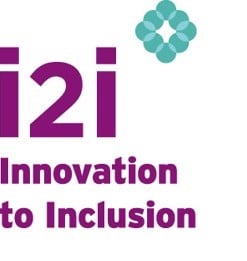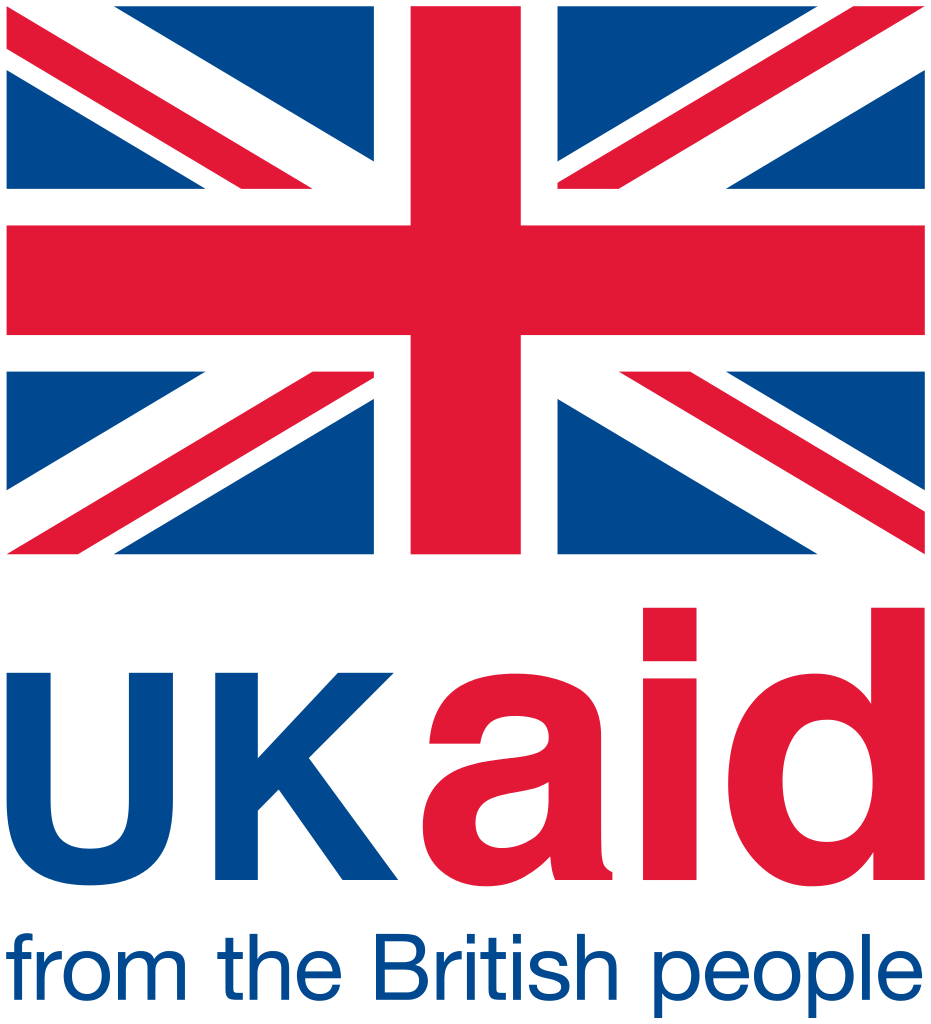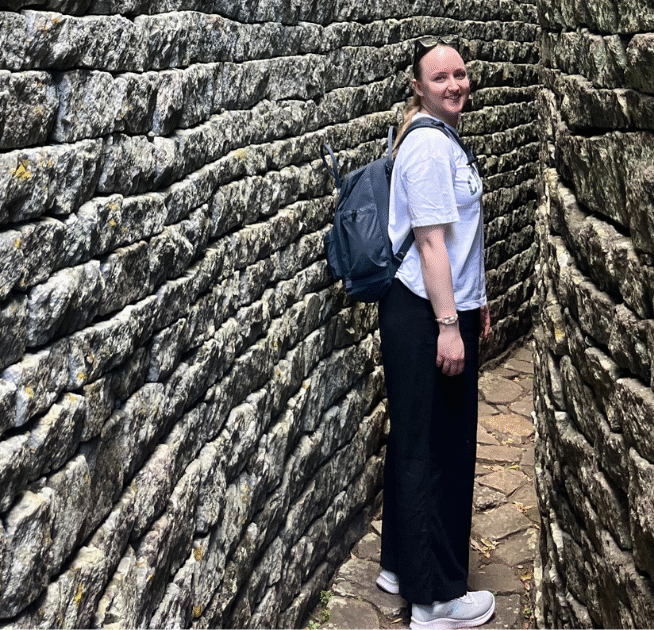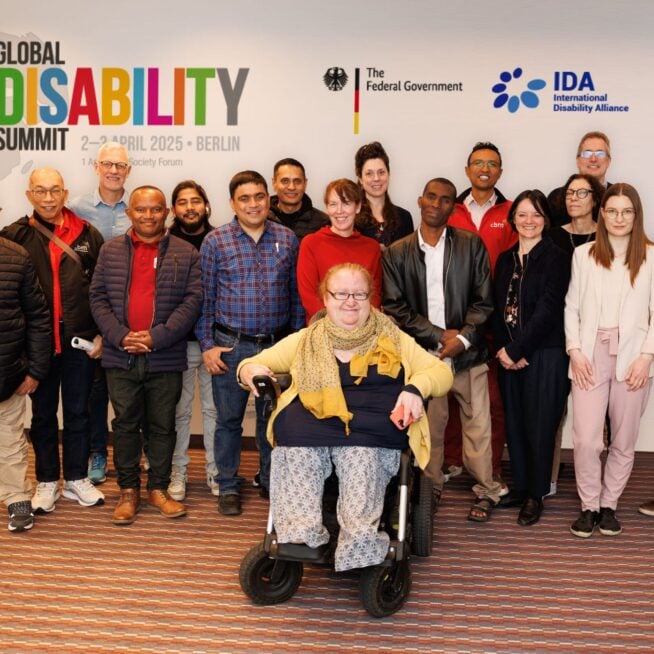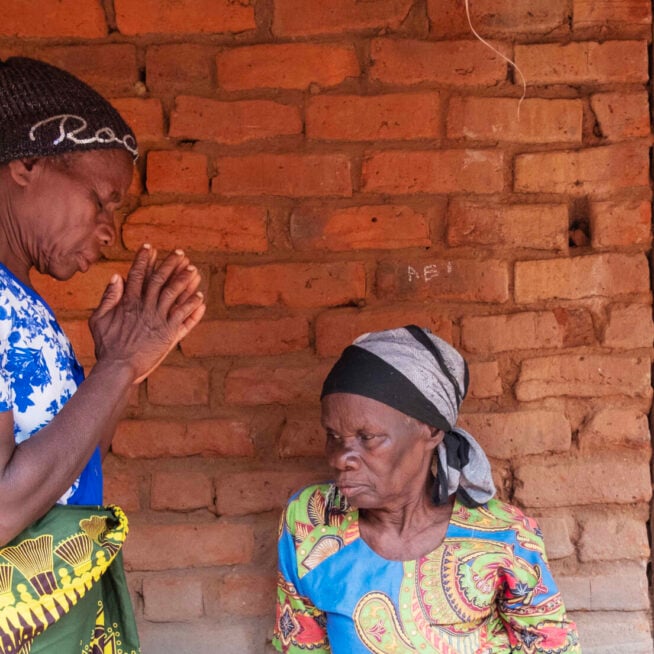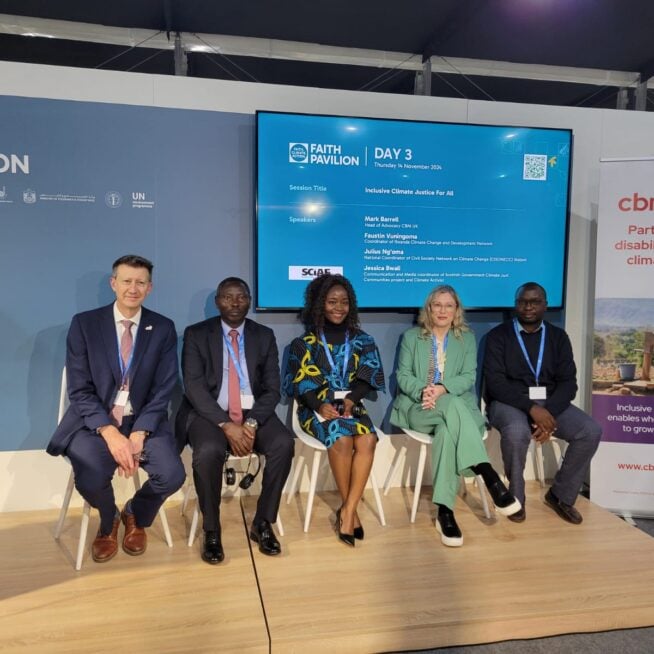Want to transform lives with us? Stay in touch and hear about our news, activities and appeals by email!
Effective approaches to improve access to employment for people with disabilities: 5 lessons from Kenya and Bangladesh

In every country in the world, people with disabilities face higher rates of unemployment than people without disabilities. This inequality is a key factor in the cycle of poverty and disability. In this blog, Asim Dio, Advocacy and Communications Manager at CBM Global–Bangladesh, Kevin Sudi, Programme Manager at CBM Global–Kenya and Emma Symonds, Programme Manager at CBM UK reflect on 5 key learnings from a recent project that explored effective ways to remove practical and attitudinal barriers that prevent jobseekers with disabilities from accessing paid employment.
In June, we marked the end of Innovation to Inclusion (i2i), a three-year programme to develop, test, and share learning on interventions to improve access to private sector waged employment for people with disabilities in Bangladesh and Kenya. The programme was funded with UK Aid from the British people It was implemented through a consortium, led by Leonard Cheshire, with a diverse range of national and international partners.
CBM, together with our national partners Association for the Physically Disabled Kenya (APDK) and Centre for Disability and Development (CDD) in Bangladesh, was responsible for working with private sector companies. As we reflect on the three years of the project, there are several lessons which we will take into future.
5 key learnings for promoting inclusive employment
- Involving organisations of people with disabilities (OPDs) is crucial in delivering systemic change. The programme supported OPDs to design and deliver evidence based national advocacy campaigns on inclusive employment policies. Bringing OPDs together to collaboratively collect and analyse data, and design and implement advocacy plans was extremely effective, with OPDs reporting they felt more confident, and their credibility with stakeholders had increased as a result.
- Job seekers value soft-skills and technical training. Our soft skills training encompassed 18 separate topics on work preparedness; participants cited training on CV and cover letter writing, interview skills, time management and self-advocacy as by far the most useful topics for them. Further feedback from both employees and employers highlighted a greater need for training on industry specific technical skills. An apprenticeship programme piloted in Kenya, whereby learners undertook a short technical course followed by a paid work placement and on the job training, was successful in helping to bridge this gap.“Knowledge is better than money; you’ve helped me make my life much better than before”. Rogers, a deaf student who participated in the skills training.
- E-learning is extremely valuable for some people with disabilities, but not all. The project tested self-guided e-learning and online classroom style training, which was particularly relevant during the COVID-19 lockdowns. This allowed us to reach large numbers at scale for low cost, and was especially beneficial to participants with mobility impairments. However, this approach was not effective for deaf and hard of hearing participants, even when sign language interpretation and other accommodations were provided. In person training was later arranged for these participants, once restrictions were lifted.
- Companies at different stages of their inclusion journey benefit hugely from interaction with each other. This peer support was often more effective than training delivered by project partners. Many companies were hugely impressed with the performance of their employees with disabilities, and were committed to continuing to remove barriers and hire more people with disabilities. The project established a Kenya Business and Disability Network and supported the strengthening of the existing Bangladesh Business and Disability Network, both of which sit within the ILO’s Global Business and Disability Network (open in new tab), and will continue to serve as platforms promoting disability inclusive employment and facilitating cross-learning between companies.
- Collaboration is key for long-term change. Kevin Sudi, Programme Manager CBM Global Kenya, reflects:
“The i2i project gave a rare platform for NGOs, OPDs and the Private sector to work together to understand the challenges facing employees and jobseekers with disabilities, and to collaborate towards solutions. This formed a solid basis for relationships and collaborative opportunities towards inclusive employment that will outlast the project.”
Asim Dio, Advocacy and Communications Manager CBM Global Bangladesh adds: “i2i gave new experiences for OPDs of working with larger consortium, particularly on collective advocacy efforts at national level and engagement with the private sector. Overall, the project gave a platform for all the consortium members, implementing agencies and OPDs to bring specialist expertise to the table so that collectively we can tackle the challenges.”
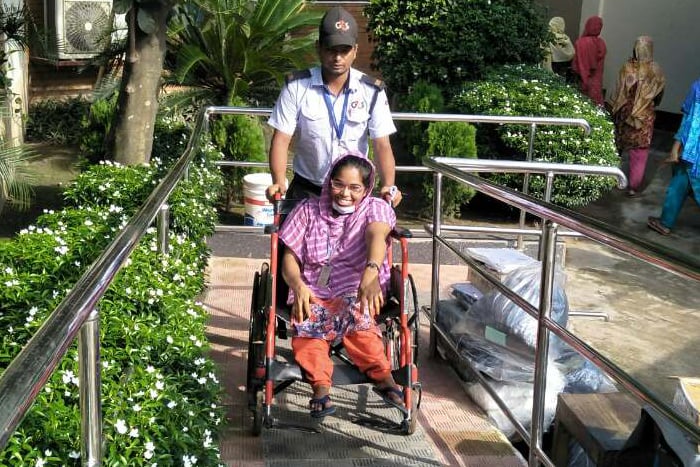
Key programme achievements
Despite immense challenges to the project implementation – from COVID-19 to two rounds of budget cuts resulting in extensive programme re-design – we are proud of our contribution to some impressive results.
- Almost 1,900 people with disabilities secured jobs in the private sector; 837 people in Bangladesh and 1,057 people in Kenya
- 54 private companies made considerable progress towards workplace inclusion;
- Over 6,000 jobseekers with disabilities received training on employability skills and basic digital skills in Bangladesh (4,203) and in Kenya (1,833)
- 20 OPDs led advocacy campaigns on inclusive employment.
We are especially pleased that the legacy of this innovative project will continue. Two inclusive careers platforms have been developed and handed over to national partners: National Council for People with Disabilities career portal (opens in new tab) and BDjobs Career Advisor (opens in new tab). People with disabilities can continue to use these to take accessible online courses and apply for positions in companies committed to disability inclusion.
A i2i legacy website (opens in new tab) has also been established to ensure that resources and learning from the project continue to be available to benefit organisations and companies working on inclusive employment.
The i2i programme has demonstrated the huge potential for people with disabilities to gain financial independence through private sector employment, as well as to add value to the companies they work for. However, there remains a great deal of work to continue to break down barriers and make this opportunity a reality for people in countries like Kenya and Bangladesh.
More about Innovation to Inclusion (i2i)
i2i was a three-year programme (2019 – 2022) funded by the UK government and UK people via the Aid Connect scheme. It was designed to develop, test, validate, and share learning on interventions to improve access to private sector waged employment for persons with disabilities. It aimed to demonstrate good practices in different regions, adapting to each context. The programme was implemented through a consortium, led by Leonard Cheshire, comprised of a diverse range of national and international partners. The consortium targeted three spheres of change:
- inclusive national systems and policies supporting equal access to waged employment for women and men with disabilities
- a supportive private sector creating inclusive employment opportunities
- people with disabilities to engage in decent waged employment
Interventions included:
- conducting disability and gender inclusion assessments and co-create ; delivering training to companies on workplace inclusion;
- working with technical and vocational training institutes to improve disability inclusive infrastructure and instruction and link trainees with disabilities to courses;
- delivering soft skills training to jobseekers with disabilities and supporting Organisations of Persons with Disabilities (OPDs) to design and deliver evidence based national advocacy campaigns on inclusive employment policies
